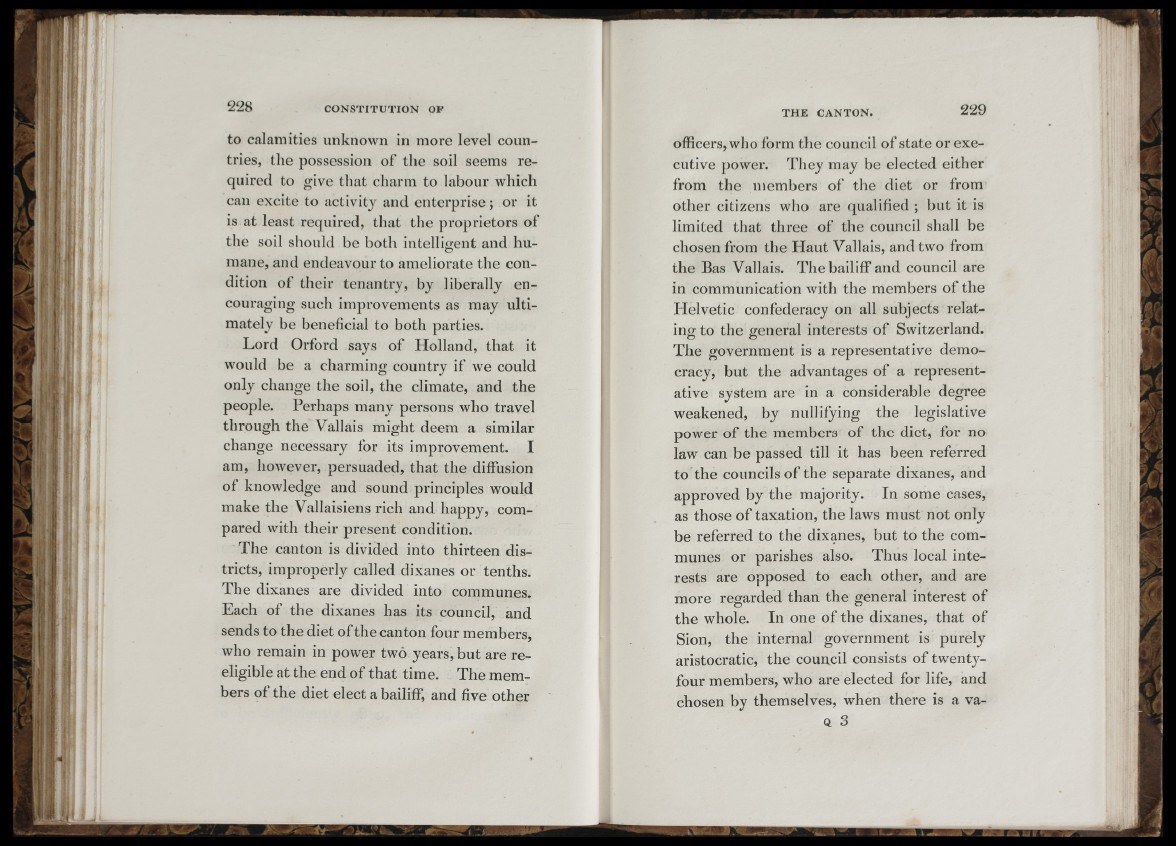
A áIJTUil ft‘l
HI- i t J
‘t
i fÜ fti ^
Tl ..
r ¡L
: n i :
i ' E.Ï ♦
i, . i * î: T-1fí *
I; ;îi ï
îi ii|; i
! 'X>| '■ "t
r ■" '
to calamities unknown in more level countries,
the possession of the soil seems required
to give that charm to labour which
can excite to activity and en terp rise; or it
is at least required, that the proprietors of
the soil should he both intellioO-ent and humane,
and endeavour to ameliorate the condition
o f their tenantry, by liberally encouraging
such improvements as may ultimately
be beneficial to both parties.
Lord Orford says of Holland, that it
would be a charming country if we could
only change the soil, the climate, and the
people. Perhaps many persons who travel
through the Valíais might deem a similar
change necessary for its improvement. I
am, however, persuaded, that the diffusion
oi knowledge and sound principles would
make the Vallaisiens rich and happy, compared
with their present condition.
The canton is divided into thirteen districts,
improperly called dixanes or tenths.
The dixanes are divided into communes.
Each of the dixanes has its council, and
sends to the diet of the canton four members,
who remain in power two years, but are re-
eligible at the end of that time. The members
of the diet elect a bailiff, and five other
officers, who form the council of state or executive
power. They may be elected either
from the members of the diet or from
other citizens who are qualified ; but it is
limited that three of the council shall be
chosen from the Haut Valíais, and two from
the Bas Valíais. The bailiff and council are
in communication with the members of the
Helvetic confederacy on all subjects relating
to the general interests of Switzerland.
The government is a representative democracy,
but the advantages of a representative
system are in a considerable degree
weakened, by nullifying the legislative
power of the members of the diet, for no
law can be passed till it has been referred
to the councils o f the separate dixanes, and
approved by the majority. In some cases,
as those o f taxation, the laws must not only
be referred to the dixanes, but to the communes
or parishes also. Thus local interests
are opposed to each other, and are
more regarded than the general interest of
the whole. In one of the dixanes, that of
Sion, the internal government is purely
aristocratic, the council consists of twenty-
four members, who are elected for life, and
chosen by themselves, when there is a va-
Q 3
-TJ